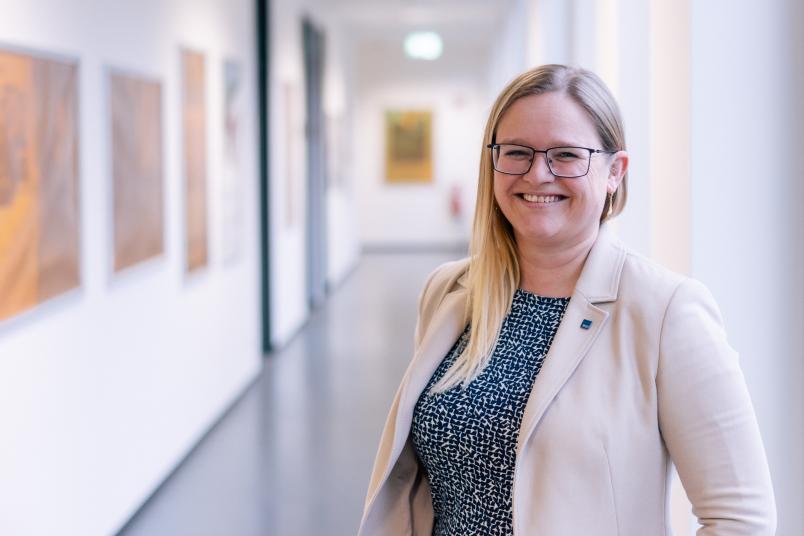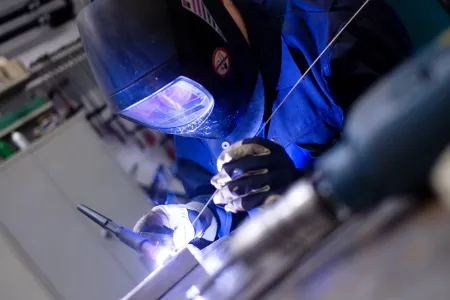
Andrea Kirsch has held the Junior Professorship for Oxidic Functional Materials since March.
Materials research
Andrea Kirsch investigates oxides as future energy materials
The researcher joined the Research Center Future Energy Materials and Systems in March – thanks in part to a "NRW Returning Scholars Grant".
Awardees receiving a "NRW Returning Scholars Grant" can choose a university in NRW to which he or she would like to return to after a research stay abroad. Dr. Andrea Kirsch has chosen Ruhr University Bochum. Since March 2025, she is a tenure-track assistant professor for Oxidic Functional Materials at the Research Center Future Energy Materials and Systems and at the RUB Faculty of Chemistry and Biochemistry.
Andrea Kirsch investigates synthesis-structure-property relationships of complex materials. Advanced materials play a crucial role in the development of new technologies. High-entropy oxides (HEOs) are an emerging class of materials that have only been discovered in the last decade. In contrast to conventional material design concepts, HEOs contain several different elements in almost equal proportions in a single crystallographic structure. This strategy offers unprecedented flexibility in tuning material properties, unlocking new functionalities and pushing the boundaries of material performance.
About the person
About the person
Despite their promising potential, many fundamental questions about HEOs still remain, particularly with regard to their synthesis, ion mixing limitations and performance in relevant energy applications. “My research project 'High entropy oxides as innovative energy materials', which was approved by the Ministry of Culture and Science of the State of North Rhine-Westphalia, is addressing these challenges,” explains Andrea Kirsch. Together with her research group, she will focus on discovering new types of HEO structures, understanding their atomic and electronic structures, and optimizing their performance for energy applications.
Another focus of Andrea Kirsch's research is the detailed structural analysis of materials using state-of-the-art characterization techniques available at large-scale research facilities such as the synchrotron “DESY” in Hamburg. These high-energy X-ray sources make experiments possible that allow observing changes in a material’s atomic and electronic structure with a second-scale time resolution. With such experiments, it is basically possible to observe the formation of materials during synthesis or to track material changes under operating conditions.
NRW Returning Scholars Grant
NRW Returning Scholars Grant
By working out relationships between synthesis, structure and material performance, this research aims to unlock the full potential of HEOs and pave the way for next-generation materials that could enable advances in catalysis, energy storage and other sustainable technologies.
Furthermore, Andrea Kirsch's work is not limited to research, it also includes teaching: “I can imagine teaching courses on ‘Synthesis and structural characterization methods in materials chemistry’ and ‘Advanced characterization techniques at large-scale research facilities’,” she says.
